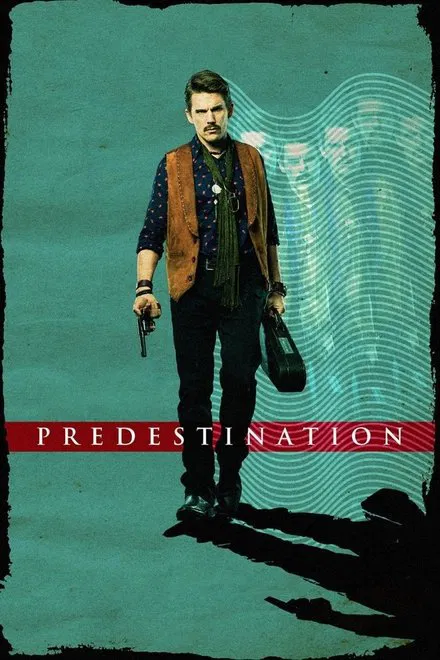
Directed by: Michael Spierig, Peter Spierig
Starring: Ethan Hawke, Sarah Snook, Noah Taylor
⏳ Introduction: The Bootstrap Paradox Unraveled
Predestination (2014), adapted from Robert A. Heinlein’s short story “—All You Zombies—,” is a time travel thriller that doubles as a philosophical labyrinth. The Spierig Brothers deliver a film that at first appears to be about a hunt for a terrorist, but ultimately reveals itself to be an exploration of self-creation, destiny, and the limits of identity. Its intricate narrative structure challenges viewers to reconsider what it means to be both author and subject of one’s own life.
🔄 Timeline Twists: The Endless Causal Loop
The central twist of Predestination is the revelation that its protagonist—the Temporal Agent (Ethan Hawke), the “Unmarried Mother” (Sarah Snook), and the Fizzle Bomber—are all the same person, existing at different points in time. Through a series of temporal interventions and self-encounters, Jane/John is not only their own parent, but their own nemesis. The film weaves these timelines into a perfect loop, a classic “bootstrap paradox” where effect becomes cause and identity is forever self-contained.
This structure is as intellectually provocative as it is emotionally disturbing. Each iteration tightens the noose: choices appear to be freely made, yet are determined by the requirements of the loop. The film thus interrogates the very possibility of free will within a closed system, asking whether fate can ever be resisted—or whether selfhood is always a prison of one’s own making.
🧬 Identity, Loneliness, and Self-Recognition
At its emotional core, Predestination is a tragedy of isolation. Jane/John’s journey is marked by abandonment, betrayal, and perpetual longing for connection. The story’s greatest irony is that every meaningful relationship in their life is with another version of themselves. The search for identity becomes an ouroboros—a snake eating its own tail—where the only solace is the recognition, however fleeting, that “you are not alone because you are everyone.”
Sarah Snook’s performance is remarkable, imbuing Jane/John with vulnerability, anger, and dignity. The film refuses to sensationalize its premise; instead, it explores the pain and confusion of becoming one’s own parent, lover, and adversary. In doing so, it asks: if you could meet every version of yourself, would you understand, forgive, or destroy who you’ve become?
💣 Fate, Guilt, and Moral Responsibility
The pursuit of the Fizzle Bomber provides the film’s thriller engine, but it is also a metaphor for the impossibility of escaping one’s darker impulses. Each attempt by the Temporal Agent to “change” the future only ensures its occurrence. The final confrontation—killing one’s future self in the hope of breaking the cycle—raises profound questions about culpability, regret, and redemption.
The Temporal Agent’s final decision to retire, haunted by the fear that he too will become the Fizzle Bomber, is left deliberately unresolved. Is the loop truly inescapable? Or is self-awareness, however painful, the first step toward change?
🎯 Final Thoughts: The Puzzle with No Solution
Predestination is a rare film that matches its narrative complexity with emotional depth. Its structure is a challenge and an invitation: to question the boundaries of self, the possibility of choice, and the meaning of destiny. In the end, the film does not provide answers, only the echoing question—who are we, if not the sum of all our timelines?